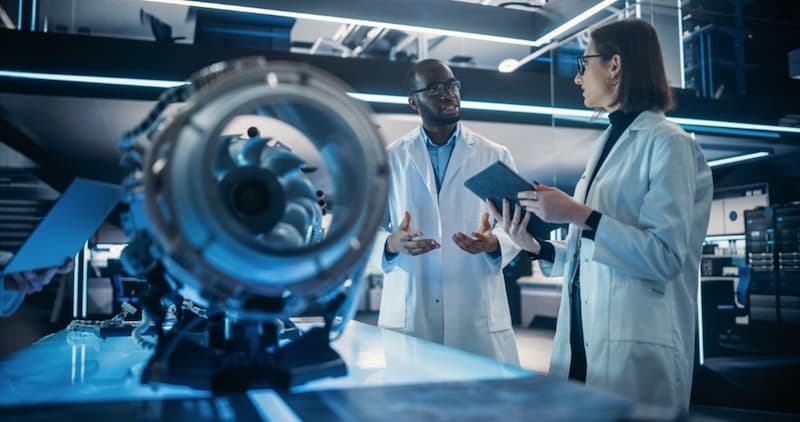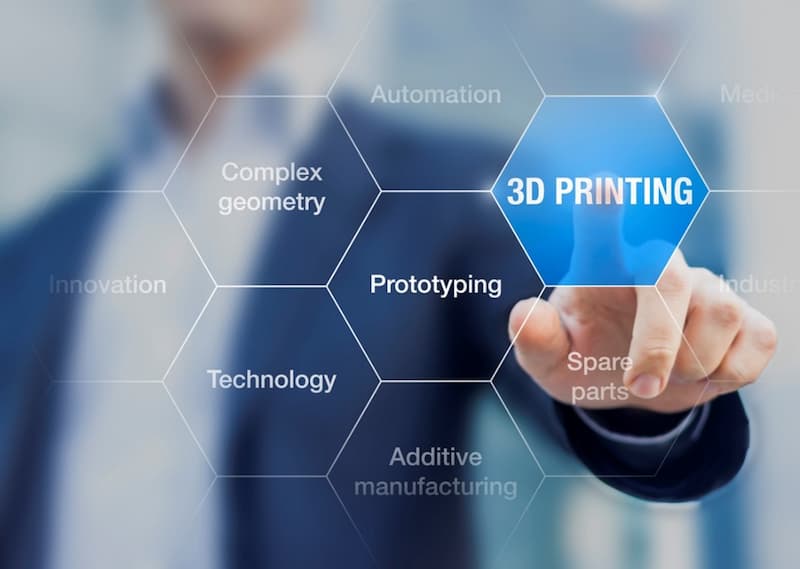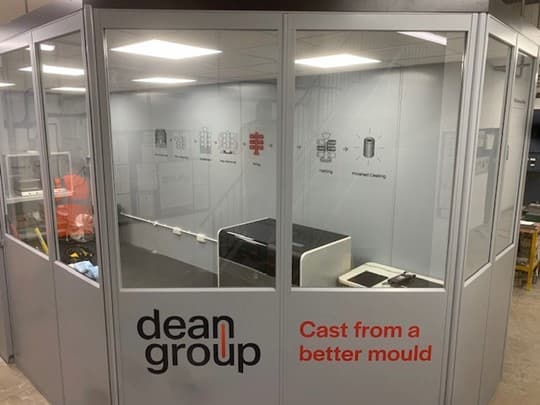How Prototyping Ensures Sustainability in Metal Casting
Despite the UK government scaling back its Net Zero 2050 plans, every industry must reduce its environmental impact to contribute to a sustainable future for the planet. Metal casting, in particular, significantly impacts the environment due to the emissions, materials and energy produced during the casting process.
However, whilst it hasn’t been easy to reduce these emissions, we at Dean Group have invested heavily in several processes to achieve this goal, with the primary contributor being our prototyping services. Today, we’ll discuss the impact of emissions in metal casting on the environment and how we at Dean Group are helping our clients get their cast components sustainably and efficiently with rapid prototyping.
Why Is Prototyping an Essential Step
Not creating prototypes in the manufacturing process can be highly wasteful and costly. Without a physical representation of the design, there is a higher risk of errors, leading to rework, wasted resources, and increased production time.
Rapid prototyping greatly assists design and is crucial in machine and product development. It allows for testing and validation, helping to identify design flaws early on and refine the product or machine before mass production. Manufacturers can minimise waste, improve efficiency, reduce costs, and ultimately deliver a higher-quality end product by investing in prototyping. Prototyping is a valuable tool for any manufacturing process, ensuring sustainability and success.
Sustainability Measures for Prototyping in Metal Casting
In the investment casting industry, sustainability measures include a variety of strategies aimed at minimising the environmental impact of the casting process. By adopting sustainable practices, developers and designers help build a more sustainable future while enjoying the advantages of our metal casting processes and adhering to national Net Zero goals.
We have implemented several measures to reduce emissions and comply with the UK's NetZero targets. We recognise the significance of minimising emissions associated with metal casting and have taken several steps to achieve this.
One of our primary approaches is continuously optimising material usage, implementing recycling initiatives, and integrating sustainable practices throughout the production cycle. These measures reduce emissions and contribute to cost savings for both our facility and clients.
Superior Waste Material Management
One key aspect of sustainability in our UK foundry is waste management. Recycling and reusing materials are crucial in reducing the amount of waste generated. We have successfully explored many ways to optimise material usage by implementing recycling initiatives, such as incorporating scrap materials into the production cycle. One example is how, after the cast parts are retrieved, the moulds are broken and sent to a nearby recycling facility that recycles the materials.
Reusing materials can also help to reduce waste and conserve resources, ultimately contributing to a more sustainable casting process. One example is how we reuse most of the wax material used in casting for later projects instead of wastefully sourcing new materials each time.
Energy Efficient Processes
Another important consideration is energy efficiency. The casting process typically involves significant amounts of energy, and optimising the process saves significant energy. We encourage the developers we work with to embrace our popular rapid casting prototyping services as they let us provide an extremely efficient development process that enables you to get what you need without the usual material wastage that other processes have.
Once the design has a finalised prototype, they can commit to investing in the casting process and the materials used there. These materials are now being used as efficiently as possible, with minimal wastage and significant improvements over committing to casting without a finalised specification. By doing so, energy waste and the overall environmental impact of the whole process is significantly lower.
Sustainable UK Metal Casting Facility
At Dean Group, sustainability is at the core of everything we do, not just our manufacturing processes but also our facility. We know the importance of minimising our environmental impact and have taken extensive measures to embrace green manufacturing.
These include taking the Green Pledge, which helps us stay on track regarding improving our resource management. We're proud to say that we've succeeded in this area, particularly by managing water usage and consumption. We reuse it whenever we can and have environmentally-friendly boilers, which consume less energy and resources.
Additionally, we've replaced all the lighting in our factory and offices with more energy-efficient LED lights. With this, we are not just managing our consumption but also helping to reduce our carbon footprint. We have also installed solar panels on our roof to power these lights and other business areas, which helps us generate clean energy for our foundry.
We aim to improve our operations to minimise our environmental impact continuously, and we'll continue to seek ways to increase our sustainability efforts. The combination of water, energy, waste recycling and reduction, pollution prevention, and rapid prototyping initiatives makes us leading contributors to a greener and more sustainable future in our industry.
Rapid Prototyping Process at Dean Group: Enhancing Efficiency and Cost Savings
At Dean Group, we provide state-of-the-art 3D wax printing for metal casting as part of our general rapid prototyping service. This service has many benefits compared to traditional prototyping and is critical in optimising production processes and delivering efficient and sustainable solutions to our clients.
Rapid prototyping involves 3D printing to create physical models of products or components, allowing for visual and functional design validation before mass production. The process starts with creating a digital 3D model using Computer-Aided Design (CAD) software. This digital model is then sent to our state-of-the-art 3D wax printing room.
Our 3D wax printing room was created to house an advanced thermojet wax modelling system capable of producing intricate and accurate wax models of complex components for metal casting. These models are the foundation for the subsequent stages of the design development process, allowing us to create intricate and complex designs with exceptional precision. This minimises the need for additional machining and tooling and reduces material waste and costs.
Creating prototypes through 3D printing eliminates the time-consuming steps of tooling and machining. This results in faster turnaround times, reduced production costs, and increased client profitability. Additionally, reducing material usage improves sustainability by minimising waste and conserving resources.
3D Wax Printed Rapid Prototypes for Metal Casting at Dean Group
Rapid prototyping at Dean Group, facilitated by our state-of-the-art 3D wax printing room, offers our clients an efficient and cost-effective solution. By utilising the power of 3D printing in rapid casting prototyping, we empower our clients to bring their ideas to life quickly and economically whilst also contributing to a more sustainable future.
Learn more about how our work will benefit your project with our complete guide to 3D prototype printing for metal casting. Also, you should contact us directly to have any questions about your specific design answered by our expert digital and casting engineers.
Registered in England VAT No: 146307478 Company Registration No: 1062820








